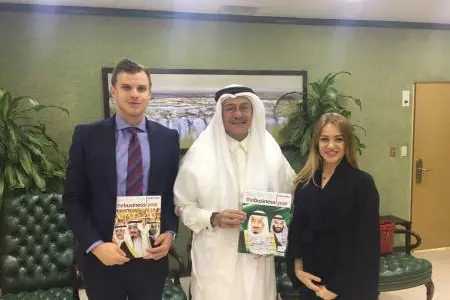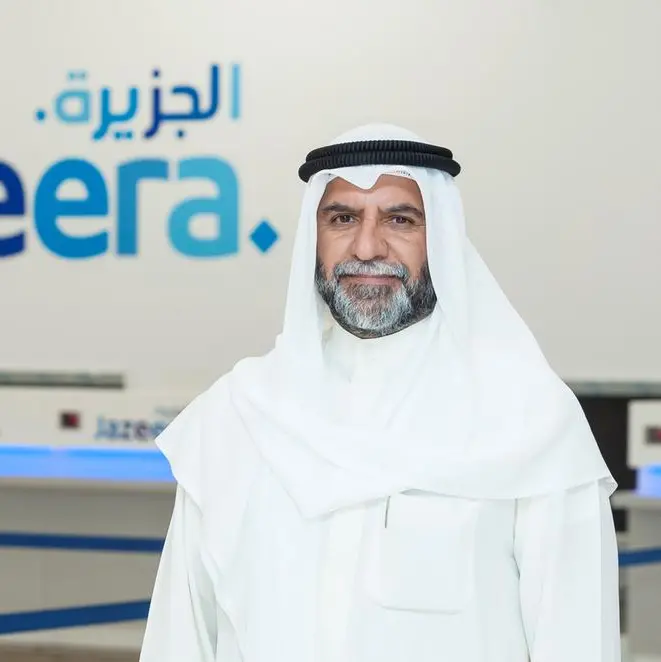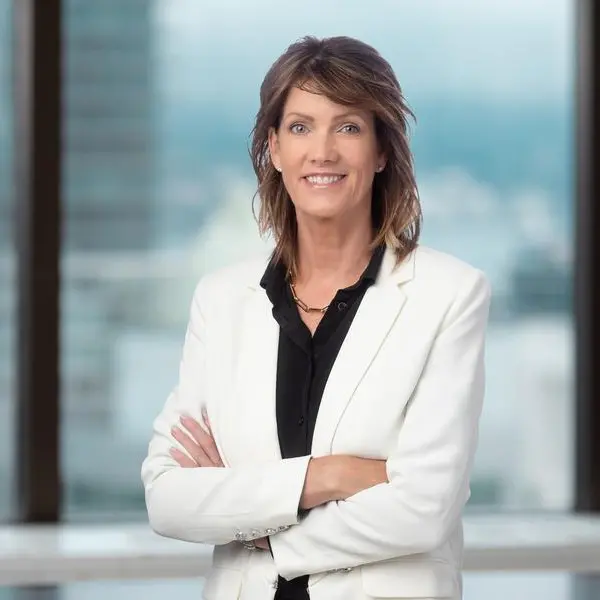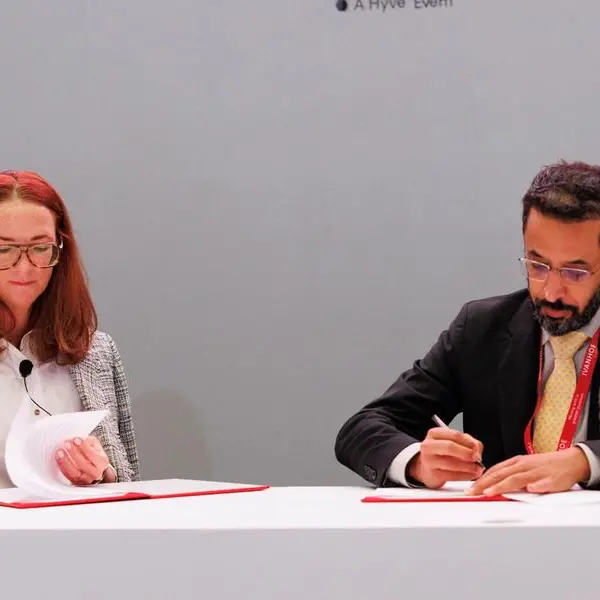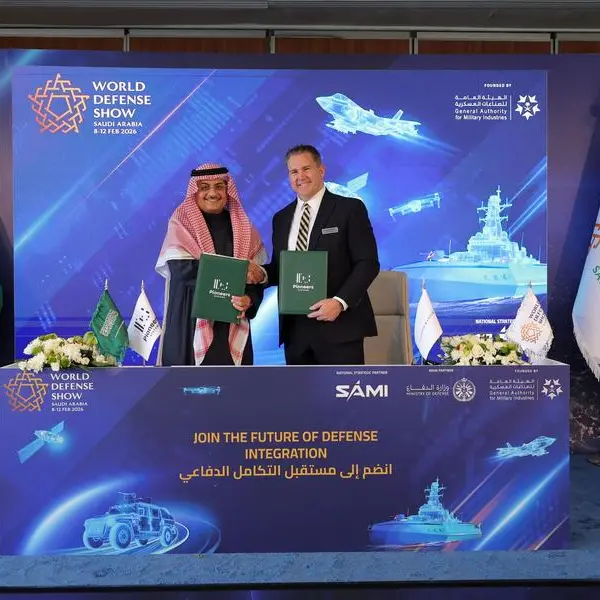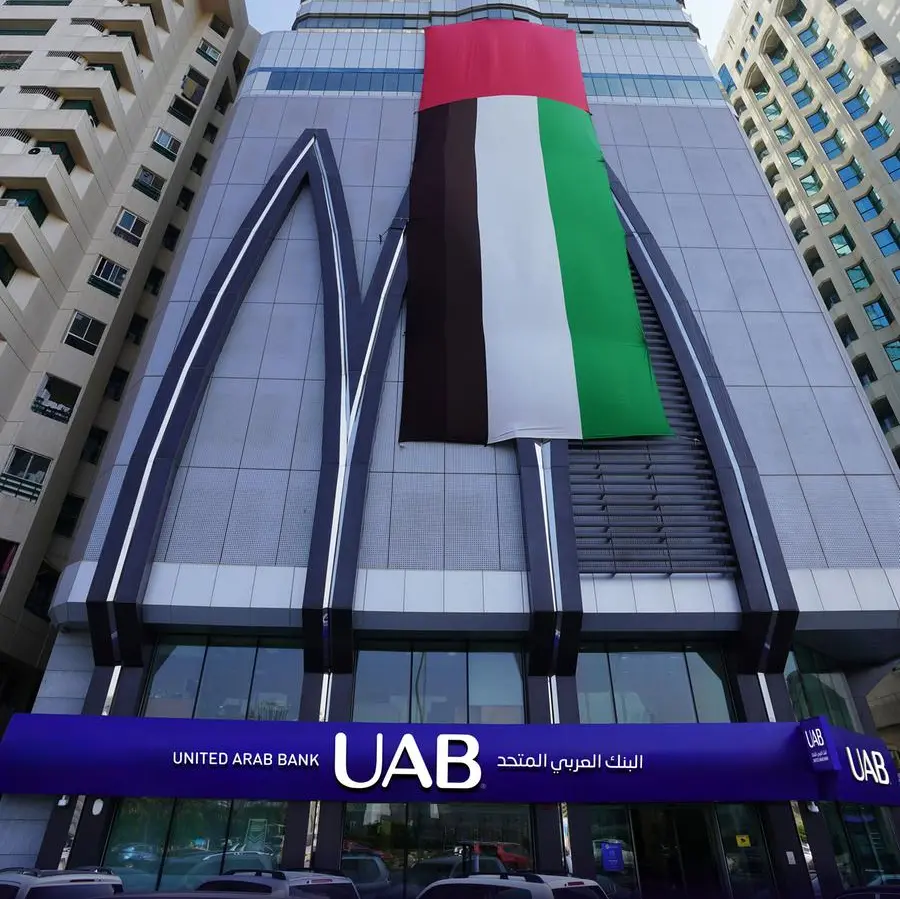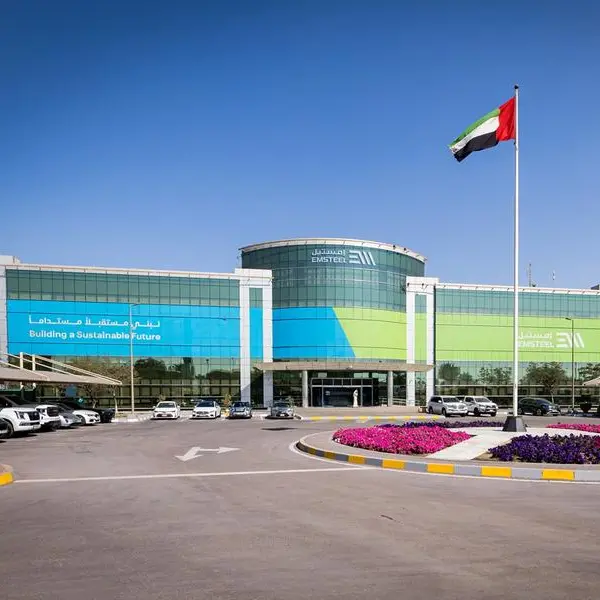PHOTO
Riyadh: THE BUSINESS YEAR (TBY), a global media group providing business and economic information on national economies through the eyes of the country’s decision-makers, recently sat down with Dr. Alaa Nassif, CEO of the Royal Commission at Yanbu & Jazan, to discuss Saudi Arabia’s various smart city initiatives, efforts in renewable energy, and its successful educational institutions.
TBY and Dr. Nassif discussed changes the Royal Commission at Yanbu has seen over the past year in Saudi Arabia. Yanbu is the country’s first smart city, and has received accolades for its innovative and groundbreaking nature, including first prize for the application with its partner Huawei, as well as emerging number one amongst 370 global cities in the Smart City Expo World Congress projects 2017. Dr. Nassif elaborated on the progress made so far, “We are both able to increase the appeal for Yanbu as a city and also use some of these smart applications as a source of revenue. Around 300 industrial entities are now connected to our smart city. Yanbu is a vibrant and growing city, with a number of projects being carried out in community areas. This smart city project aims to improve citizens’ quality of life via deploying a new fiber network, building a smart lighting control system, improving overall mobility, creating a big data platform, and developing an Integrated Communication Platform (ICP).”
The conversation then moved to the importance of downstream segments, since Yanbu still has the third-largest refining capacity in the world, and is soon to shoot to the global top spot once new refining organizations are commissioned. Other downstream segments, such as the rubber industry, are also developing at a rapid pace in Yanbu. Dr. Nassif mentioned in particular two new projects for manufacturing units that will be fully operational by the end of 2018. He stated, “We are working on the site to prepare for the renewable energy shift, first solar and subsequently wind. Our competitive advantage in this area is that we will not only produce our renewable energy locally, but also produce the cells needed for this onsite.”
When asked about Yanbu’s role in supporting Saudi’s SMEs, he detailed, “We have a number of projects to support SMEs, some independently and others together with the Saudi Industrial Development Fund. The major issue for industrial SMEs is the high CAPEX in this sector. We, therefore, provide ready buildings that SMEs can lease and we support them by training their staff. In this way, they can commission and produce within three months, and it minimizes the time for SMEs to break even.”
The Business Year then gathered Dr. Nassif’s comments on spearheading this initiative alongside the government’s Vision 2030, in particular its ambitious goals to reform the education sector. An advantage, according to Dr. Nassif, of Saudi Arabia’s current education mix is that colleges and institutes are market based, meaning curriculums are constantly undergoing evaluation by consulting industrial committees to ensure material is relevant, and pinpointing subject areas that need greater attention. He continued, “Furthermore, our entire program is internationally accredited and we partner with some of the world’s best universities to introduce new programs such as insurance specialties. Some of our subjects, such as our supply chain specialty, are unique in the GCC. In addition, we provide certificates and training for those who are more vocationally inclined.”
The successes of these measures are evident. “In 2017, 70% of Yanbu Industrial College and Yanbu University College graduates were able to find a job within six months, an impressive figure by international and local standards. Our first batch of female graduates will also enter the labor market in 2019,” Dr Nassif concluded.
TBY’s CEO Ayse Valentin commented, “a truly radical first for Saudi Arabia, Yanbu is exceeding expectations across the board. At The Business Year we are thrilled to see holistic economic development projects like this taking off, and showing signs of contributing in the long-term to a country’s sustainable, economic health.”
Dr. Alaa Nassif is CEO of the Royal Commission at Yanbu & Jazan, and also oversees the management of Yanbu Industrial City and is CEO of the Royal Commission at Jazan City for Primary & Downstream Industries (RCJCPDI) since September 2015. He holds a PhD from the University of Salford in Manchester, a master’s from the University of Miami, and a bachelor’s from King Abdul Aziz University. He has also attended Oxford University and Massachusetts University of Technology (MIT). He is also a member of numerous boards of directors including the Saudi Energy Efficiency Council and the King Abdullah University of Science and Technology (KAUST).
-Ends-
The Business Year: Saudi Arabia 2018 will be published in late 2018 and will feature views and insights of around 140 senior executives and government officials across all sectors, obtained through face-to-face interviews in the country. TBY’s Saudi Arabia coverage will also feature sector reviews, analyses, focus articles, and contributions from foreign guest speakers. The publication will be widely distributed locally and internationally at major economic forums, investment forums, and conferences across the world, contributing to the global promotion of Saudi Arabia’s investment climate.
© Press Release 2018